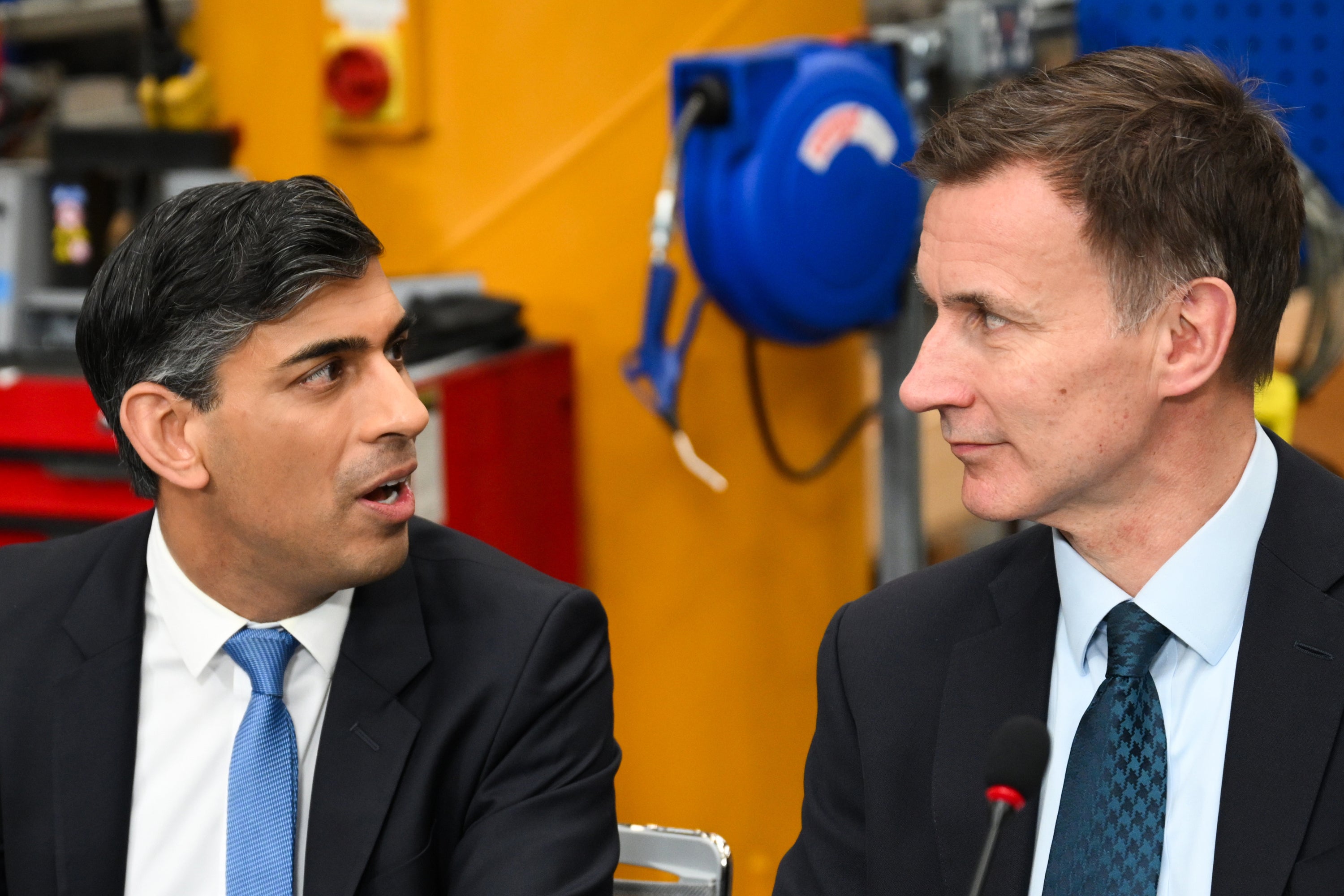Jeremy Hunt should not cut taxes without explaining cost to public services, IFS warns
The IFS have joined warnings from economists against cutting public spending in order to fund tax cuts
Your support helps us to tell the story
From reproductive rights to climate change to Big Tech, The Independent is on the ground when the story is developing. Whether it's investigating the financials of Elon Musk's pro-Trump PAC or producing our latest documentary, 'The A Word', which shines a light on the American women fighting for reproductive rights, we know how important it is to parse out the facts from the messaging.
At such a critical moment in US history, we need reporters on the ground. Your donation allows us to keep sending journalists to speak to both sides of the story.
The Independent is trusted by Americans across the entire political spectrum. And unlike many other quality news outlets, we choose not to lock Americans out of our reporting and analysis with paywalls. We believe quality journalism should be available to everyone, paid for by those who can afford it.
Your support makes all the difference.Chancellor Jeremy Hunt should not cut taxes in next week’s budget unless he can “spell out” where spending cuts will fall, according to influential think tank the Institute for Fiscal Studies.
Mr Hunt is said to be mulling tax cuts despite calls from economists to resist any more reductions to public services, as he faces mounting pressure from those on the right of the party.
The International Monetary Fund (IMF) has warned Mr Hunt it would be “very challenging” to achieve tax cuts considering Britain’s ageing population and mounting debt pile, and cautioned that the transition to net zero and protecting the UK’s public services like hospitals and schools would need higher spending in the medium term than current government plans.
The IFS has added to warnings against further cuts to public spending, citing the “unhappy outlook for public finances”.
The report, written by the IFS and funded by the Economic and Social Research Council, said during the Autumn statement the chancellor “ignored the impacts of higher inflation on public service budgets and instead used additional tax revenues to fund eye-catching tax cuts.”
It warns against doing the same this time, stating that “until the Government is willing to provide more detail on its spending plans in a spending review, it should refrain from providing detail on tax cuts.”
In analysis published ahead of next week’s budget, the IFS has also suggested the budget deficit may be around £11 billion smaller than it was forecast to be in November, but still much higher than it was forecast to be in March 2022.
It said that faster population growth projected by the ONS could boost revenues, but also meant current plans would see per-person spending rise by just 0.2 per cent per year after the election.

Taking into account spending plans for the NHS, defence, schools and childcare meant other departments would see around £20 billion per year in real-terms cuts by 2028-29, with another £20 billion per year set to be taken out of investment spending.
The report will come as yet another headache for the chancellor ahead of his final budget before a general election, as official statistics showed that the UK economy official entered a technical recession at the end of last year.
Left-leaning think tank Institute for Public Policy Research said the economy’s contraction should be a wake-up call for the government.
Pranesh Narayanan, research fellow at the Institute for Public Policy Research (IPPR) has said the figures underscore the need for public investment, rather than “irresponsible tax cuts”.
“This time last year, the Prime Minister pledged to get the economy growing but today’s data, showing a mild technical recession, shows a stark lack of progress,” Mr Narayana said. “Chronic underinvestment in hospitals, schools, net zero and infrastructure has created a crumbling public realm and a broken economy.
“This should be a wake-up call that spurs the government to prioritise public investment rather than irresponsible tax cuts. Let’s fix our problems now rather than storing them up for later.”
Martin Miklos, research economist at the IFS, said: “In November’s autumn statement, the Chancellor ignored the impacts of higher inflation on public service budgets and instead used additional tax revenues to fund eye-catching tax cuts.
“At next week’s Budget, he might be tempted to try a similar trick, this time banking the higher revenues that come from a larger population while ignoring the additional pressures that a larger population will place on the NHS, local government and other services.
He added: “He might even be tempted to cut back provisional spending plans for the next Parliament further to create additional space for tax cuts.
“The Chancellor should resist this temptation. Until the Government is willing to provide more detail on its spending plans in a spending review, it should refrain from providing detail on tax cuts.”

Join our commenting forum
Join thought-provoking conversations, follow other Independent readers and see their replies
Comments